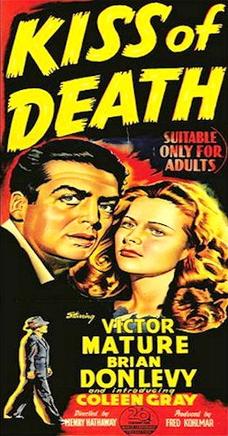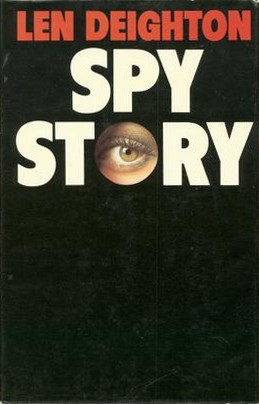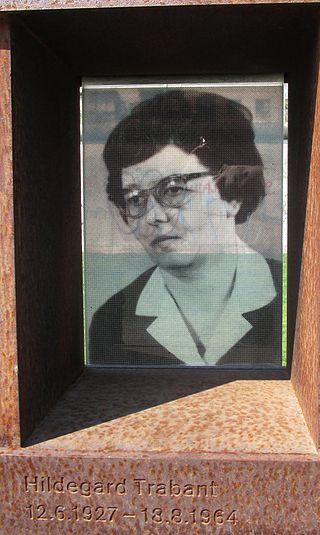Trabant is a series of small cars produced from 1957 until 1991 by former East German car manufacturer VEB Sachsenring Automobilwerke Zwickau. Four models were made: the Trabant 500, Trabant 600, Trabant 601, and the Trabant 1.1. The first model, the 500, was a relatively modern car when it was introduced.

Friedrich Wilhelm Christian Karl Ferdinand von Humboldt was a German philosopher, linguist, government functionary, diplomat, and founder of the Humboldt University of Berlin, which was named after him in 1949.

German reunification was the process of re-establishing Germany as a single full sovereign state, which took place between 9 November 1989 and 15 March 1991. The "Unification Treaty" entered into force on 3 October 1990, dissolving the German Democratic Republic and integrating its recently re-established constituent federated states into the Federal Republic of Germany to form present-day Germany. This date has been chosen as the customary German Unity Day, and has thereafter been celebrated each year as a national holiday in Germany since 1991. As part of the reunification, East and West Berlin were also de facto united into a single city, which eventually became the capital of Germany.

In German culture, Ostalgie is nostalgia for aspects of life in Communist East Germany. It is a portmanteau of the German words Ost (east) and Nostalgie (nostalgia). Its anglicised equivalent, ostalgia, is also sometimes used. Another term for the phenomenon is GDR nostalgia.

Kiss of Death is a 1947 American film noir directed by Henry Hathaway and written by Ben Hecht and Charles Lederer from a story by Eleazar Lipsky. The story revolves around an ex-con played by Victor Mature and his former partner-in-crime, Tommy Udo. The movie also starred Brian Donlevy and introduced Coleen Gray in her first billed role. The film has received critical praise since its release, with two Academy Award nominations.
William Hutchison Murray, was a Scottish mountaineer and writer, one of a group of active mountain climbers, mainly from Clydeside, before and just after World War II.
East German jokes, jibes popular in the former German Democratic Republic, reflected the concerns of East German citizens and residents between 1949 and 1990. Jokes frequently targeted political figures, such as Socialist Party General Secretary Erich Honecker or State Security Minister Erich Mielke, who headed the Stasi secret police. Elements of daily life, such as economic scarcity, relations between the GDR and the Soviet Union, or Cold War rival, the United States, were also common. There were also ethnic jokes, highlighting differences of language or culture between Saxony and Central Germany.

The London Underground A60 and A62 Stock, commonly referred to as A Stock, was a type of sub-surface rolling stock which operated on the Metropolitan line of the London Underground from 12 June 1961 to 26 September 2012, and on the East London line from 1977 until 22 December 2007, when it closed to be converted into London Overground.

Talladega Nights: The Ballad of Ricky Bobby is a 2006 American sports comedy film directed by Adam McKay who co-wrote the film with Will Ferrell. It features Ferrell as the titular Ricky Bobby, an immature yet successful NASCAR driver. The film also features John C. Reilly, Sacha Baron Cohen, Gary Cole, Michael Clarke Duncan, Leslie Bibb, Jane Lynch, and Amy Adams in supporting roles. NASCAR drivers Jamie McMurray and Dale Earnhardt Jr. appear in cameos, as do broadcasting teams from NASCAR on Fox and NASCAR on NBC.
Daphne Berdahl was an anthropologist known for her work on Eastern Germany and Post-socialist Europe. Her work on gender and consumption as well as her writing on post-communist nostalgia has been widely cited by scholars of post-socialism.
Rory MacLean FRSL is a British-Canadian historian and travel writer who lives and works in Berlin and the United Kingdom. His best known works are Stalin’s Nose, a travelogue through eastern Europe after the fall of the Berlin Wall; Magic Bus, a history of the Asia Overland hippie trail; and Berlin: Imagine a City, a portrait of that city over 500 years. In 2019 John le Carré wrote that MacLean "must surely be the outstanding, and most indefatigable, traveller-writer of our time."

The Wartburg 353, known in some export markets as the Wartburg Knight, is a medium-sized family car, produced by the East German car manufacturer AWE for their Wartburg brand. It was the successor of the Wartburg 311, and was itself succeeded by the Wartburg 1.3.

Nora Marie Tschirner is a German film actress, musician and former television and radio presenter.

Spy Story is a 1974 spy novel by Len Deighton, which features minor characters from his earlier novels The IPCRESS File, Funeral in Berlin, Horse Under Water, and Billion Dollar Brain.
The Moon and the Sledgehammer is a British 1971 cult documentary film directed by Philip Trevelyan and produced by Jimmy Vaughan which documents the eccentric lives of the Page family, consisting of the elderly Mr Page and his adult children Jim, Pete, Nancy and Kath, who live in a wood in Swanbrook, near Chiddingly, Sussex without mains gas, mains electricity or running water. The sons find employment by fixing mechanical things as odd jobs and maintain two traction engines.

Wolfgang Stumph is a German actor and cabaret artist.

The Trabant 601 was a Trabant model produced by VEB Sachsenring in Zwickau, Saxony. It was the third generation of the model, built for the longest production time, from 1964 to 1990. As a result, it is the best-known Trabant model and often referred to simply as the "Trabant" or "Trabi". During this long production run, 2,818,547 Trabant 601s were produced overall, and it was the most common vehicle in East Germany.

Trabbi Goes to Hollywood is a 1991 American comedy film directed by Jon Turteltaub and starring Thomas Gottschalk, Billy Dee Williams, Michelle Johnson, Dom DeLuise, and James Tolkan.

The Kurdistan Democratic Party of Syria, commonly known as KDPS or PDK-S, is a Kurdish Syrian political party founded in 1957 by Kurdish nationalists in northern Syria. The party is based in Hamburg, Germany and has various branches in France, United Kingdom, Sweden and the United States of America.

Hildegard Johanna Maria Trabant was an East German woman who became the fiftieth known person to die at the Berlin Wall. Trabant was shot and killed by East German border guards during a crossing attempt, one of only eight women victims of the Berlin Wall, and was the only escapee victim known to have a record of loyalty toward the East German regime.














